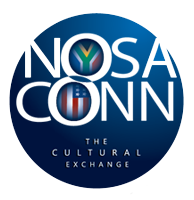Jazz City 406
Jazz City
By Jay Mazza
Miriam Makeba at Harrah’s
On a recent trip out of town, I had the luxury to purchase a number of compact discs by jazz artists from South Africa. While New Orleans shares many things with the southernmost country on the African continent including the recently formed New Orleans South African Connection (NOSACONN), we don’t have much access to music from that part of the world.
Even more significantly is the lack of performances in the area by artists from South Africa. While trumpeter Hugh Masekela has made numerous visits to the Crescent City, he is an internationally known icon whose talents, particularly as the composer of the classic, “Grazin’ in the Grass”, belie his status as a South African.
However, the dearth of South African musicians gracing the stages of New Orleans is changing through the efforts of NOSACONN. In a short period of time, NOSACONN has arranged a form of cultural exchange between our city and their country. They have brought musicians of high regard to New Orleans. The appearance by the phenomenal Phillip Tabane with his band Malombo at this past year’s Jazz Fest was through the efforts of NOSACONN. On the other side of the Atlantic, home grown talents such as Donald Harrison, Jr. and the Batiste Brothers have graced stages in South Africa.
On November 11, another internationally known icon of South African music and the struggle against the brutal apartheid regime that defined that country for years, visits New Orleans. Miriam Makeba is known as “Mama Africa” for her role in the struggle.
For thirty years Makeba was exiled from her home. Due to high profile associations with African-Americans during her years in the States, she became a powerful voice that kept up the pressure on the government of Pretoria. She is credited with being part of the international effort that eventually caused the collapse of the repressive regime that restricted all aspects of the lives of blacks in South Africa.
She became the toast of Manhattan when she appeared with her then husband Masekela on a tour in 1959. At that time, and from my personal recollections well into the seventies, the brutalities of apartheid were not well known among Americans. Harry Belafonte became one of her admirers.
In 1967 she married Black Panther Stokey Carmichael and actually experienced another form of apartheid when she was blacklisted by the entertainment community. Ironically, only a few short years earlier, in 1962, she performed at President Kennedy’s legendary birthday party at Madison Square Garden in New York City. Another famous woman with the same initials (MM) also sang that evening.
However, Makeba has never been one to run and hide and she continued to use her position to work against the system in her country. Her outspoken nature also caused her to be continually denied access to her homeland. But it also created a forum for dialogue. She has addressed the United Nations’ General Assembly twice- a feat even rarer for a singer.
Now, years later, she has released her first new disc in a decade called Homeland. It showcases her exquisite voice that has only gotten stronger with time.
Makeba was raised in the rich choral traditions of the townships outside Johannesburg where singing is a way of life that serves a powerful social function. It is said that in South Africa there is a song for everything from birth to death.
At the young age of 21, she was performing with the Manhattan Brothers and shortly thereafter she formed her own all-female group, the Skylarks. In 1967, she became the first African performer to have a Top 10 hit with the song “Pata Pata”. She reprises the tune on her new disc.
American listeners who are unfamiliar with her work may recall Paul Simon’s hit album, Graceland, which exposed many to the wonders of the South African vocal style. Makeba performed on that recording along with another group of South African vocal powerhouses, Ladysmith Black Mambazo. She also toured with Simon and her association with the singer/songwriter is credited with helping revive her singing career.
With the fall of apartheid, Makeba returned home to a hero’s welcome. Along with Nelson Mandela, she is one of the most respected people in South Africa. She continues to support political and social causes both at home and abroad. She is outspoken about AIDS awareness and women’s rights. She is truly Mama Africa.
The concert is in the underused Mansion Ballroom at Harrah’s Casino at the foot of Canal Street. While she is well known for the non-musical side of her career, she is also a wonderful performer. It should be a great night. See you there!
